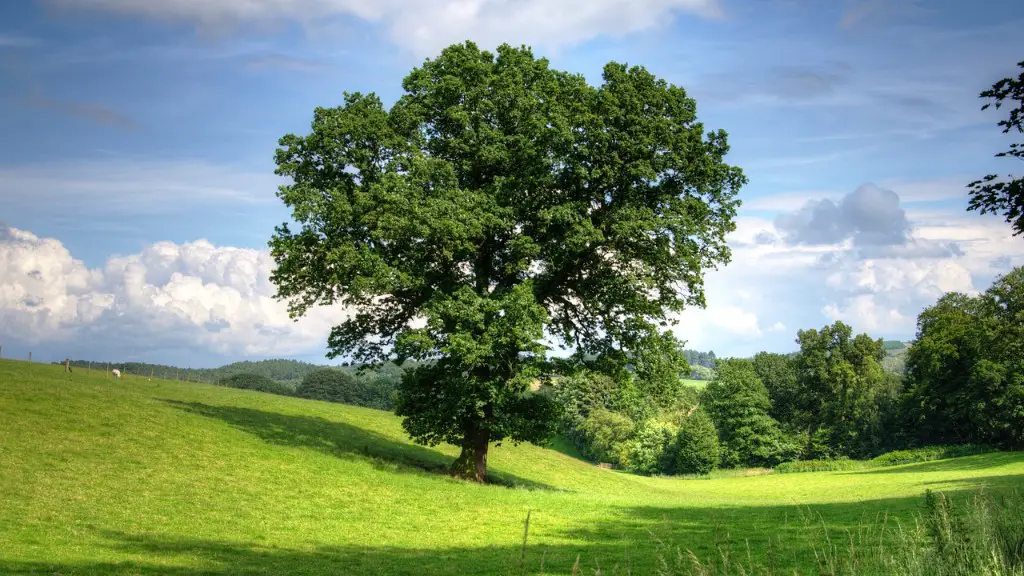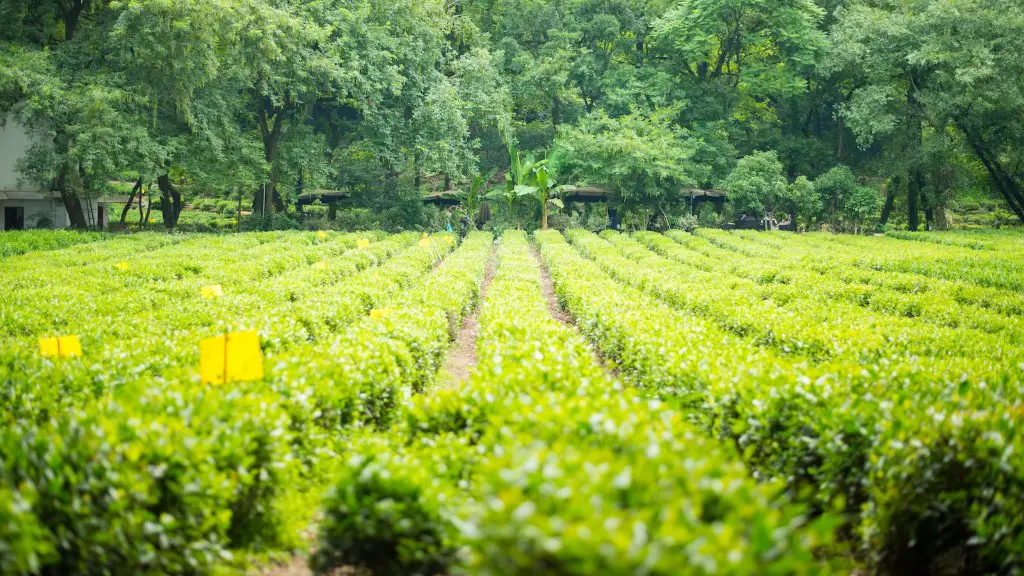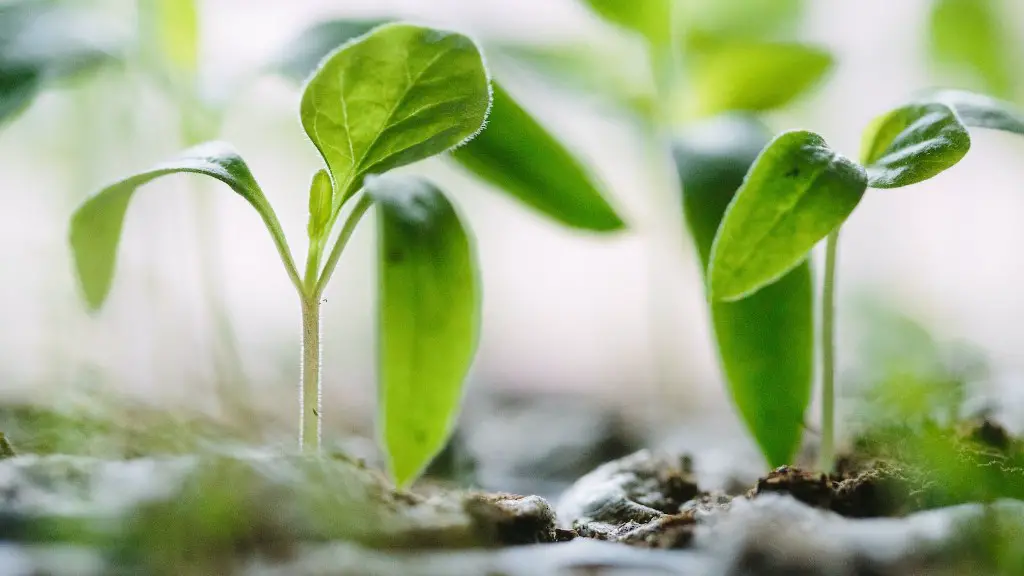Precision agriculture is a farming system that utilizes modern technology, such as satellite imagery, GPS mapping, and automated equipment, to increase crop yields and reduce environmental impact. It is a method of farming that focuses on individual plants and plants groups rather than treating an entire field as a single unit. Precision agriculture can help farmers better manage their land and resources, and allow for more targeted applications of fertilizers and pesticides. By utilizing localized data and feedback, precision agriculture can optimize seeding rates, improve nutrient management and reduce soil compaction. In addition, precision agriculture can help farmers make well-informed decisions about their crops, ultimately leading to higher yields.
Using precision agriculture the farmers can gather a detailed and specific understanding of their crops and how their crops respond to environmental and seasonal changes. This allows precision agriculture to be tailored to the exact needs of crops on specific soils and climates, adding to its effectiveness. With the help of advanced technology, the farmers can adjust their seeding rates and variable-rate application of fertilizers and pesticides in order to achieve optimal growth and productivity. The automated equipment allows them to accurately monitor the changes in their crops, giving them an in-depth analysis of the crop’s performance.
The use of precision agriculture also helps to reduce the use of chemical fertilizers and pesticides. By carefully controlling the application of these chemicals, farmers can increase their efficiency while minimizing the amount of runoff into nearby water sources. In addition, precision agriculture systems enable farmers to better time the applications of pesticides and fertilizers, making sure these treatments occur only when necessary, which helps reduce the amount of runoff.
The use of precision agriculture also helps farmers maximize their yields by providing detailed information about their crops. By understanding how their crops respond to environmental and seasonal changes, farmers can adjust their cultivation techniques to deliver maximum yields from their land. The use of data gathered from satellites also allows farmers to accurately identify weeds, pests, and diseases, providing them with an early warning system for potential problems.
Overall, precision agriculture provides farmers with a method to improve the efficiency and productivity of their land. By utilizing advanced technology, precision agriculture can help farmers better manage their land and resources, maximize yields, and reduce their environmental impact. Moreover, precision agriculture can provide detailed information about crops and help farmers detect nutritional deficiencies and pest infestations while also reducing their use of chemical treatments.
Advantages
Precision agriculture offers farmers a number of advantages over traditional farming techniques. It enables farmers to maximize yields and reduce their environmental damage while maintaining the quality of their crops. By precisely measuring the amount of fertilizer and pesticide that is used, and applying it only when necessary, precision agriculture can reduce chemical runoff into nearby water sources while helping farmers maintain the quality of their land. The use of automated machines allows farmers to efficiently manage their land with minimum human input, saving them time and energy. Furthermore, by collecting detailed information about their crops, precision agriculture can help farmers identify potential problems with their crop before they become a problem and help farmers manage their land with utmost efficiency.
Disadvantages
While precision agriculture can offer farmers a number of advantages, there are also some potential disadvantages. For one, precision agriculture requires a significant initial investment in equipment and technology. This can be cost-prohibitive for many smaller-scale farms. Additionally, precision agriculture requires farmers to have a certain degree of technological literacy and understanding in order to be able to effectively use the technology. This may prove difficult for farmers with limited technology knowledge. Furthermore, precision agriculture can be dependent on accurate weather information, weather forecasts and soil maps, something that is not always available in remote or impoverished areas.
Environmental considerations
Precision agriculture has the potential to reduce environmental damage by carefully controlling the application of fertilizers and pesticides. By precisely applying these chemicals, farmers can reduce runoff into nearby water sources and help protect the quality of their land. Precision agriculture can also help identify areas where soil erosion or compaction is occurring and help farmers by providing recommendations on how to mitigate these issues. However, precision agriculture can also lead to potential environmental problems if the technology is used improperly or inconsistently. For example, improper applications of chemicals can still lead to runoff or overspray into nearby areas, leading to potential water contamination.
Social impacts
Precision agriculture can have both positive and negative impacts on the social environment. On the positive side, precision agriculture can improve the quality of life for farmers by enabling them to more effectively manage their crops and land. By utilizing detailed information about their crops, farmers can make well-informed decisions that maximize their yields and reduce their environmental impact. Farmers can also benefit from reduced costs, as precision agriculture enables them to reduce the amount of manual labor that is required to manage their land. On the negative side, precision agriculture can potentially lead to a decline in agricultural jobs in rural areas, as automated machines can replace the need for manual labor. Additionally, precision agriculture can depend on accurate weather forecasts and soil maps, something that is not always readily available in impoverished or remote areas.


